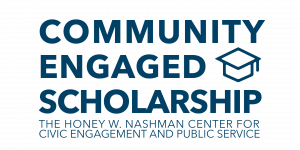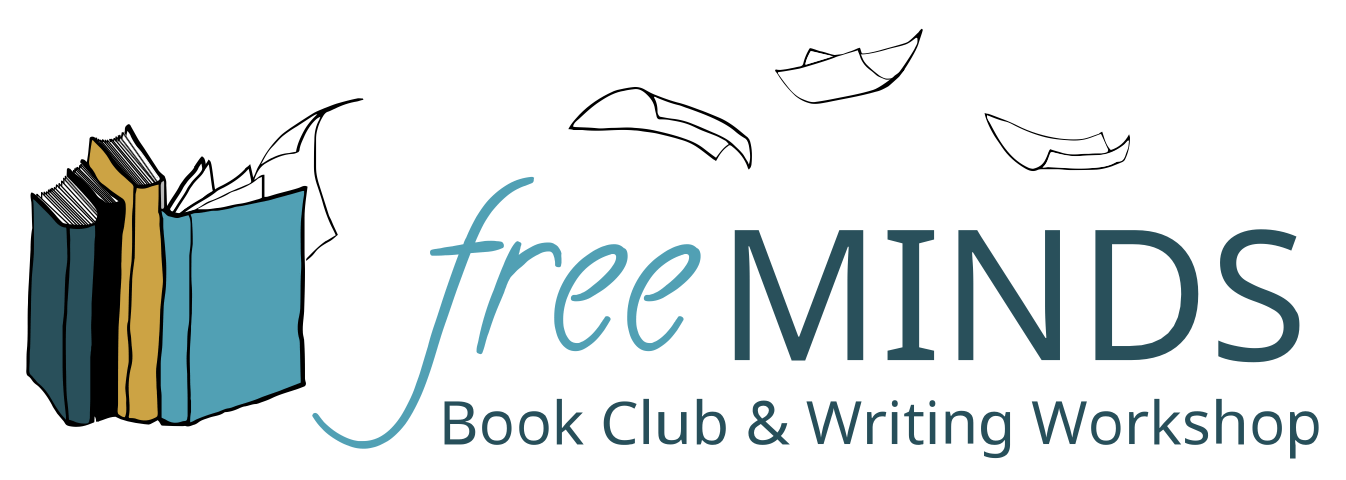As DC Public Schools is in the beginning stages of a “Connected Schools” program, interested faculty may want to learn more about the Community Schools movement. Learn more here.
Category: Uncategorized
Good Reads: Universities and Community Schools Journal Vol. 11, No. 1 – Graduate Student Issue
The Netter Center at Pennsylvania University has just released a new issue of its Universities and Community Schools journal authored largely by graduate students. The topics of this issue center on community-engaged research, particularly with local public schools. Check out the issue here.
Good Reads: Resources on Learning and the Public Humanities
An interesting resource on learning and the public humanities, including community engaged scholarship in the humanities.: NHAlliance
Good Reads: GW Alumna Aiding Amputees in Ukraine
Sarah Malinowski, GWU biomedical engineering alumna, traveled to Ukraine to improve her prosthetic knee prototype with input from amputees injured from Russia's war in Ukraine. Sarah co-started her own company, Seamless Transition, LLC, to build a prosthetic so amputees, especially veterans and active duty military members, could resume their active lifestyles. Check out the article in GW Today.
Nashman Spotlights: Christina Villadolid Receives First Place for 2023 Community Engagement in the Arts and Design Award
Congratulations to Christina Villadolid, First Place Winner of the Nashman Center Community Engagement in the Arts and Design Award for their project, 'Tracing Manila House,' an ongoing art project that brings Filipino American history to life while building a resilient and interconnected community in Washington, D.C. Through graphite rubbings, engaging with local schools, and honoring the forgotten past of the Manila House, this project reshapes narratives, educates, and inspires change. Explore how one artist's personal journey of reckoning with colonial history has sparked a beacon of resilience and remembrance for a marginalized community. ...continue reading "Nashman Spotlights: Christina Villadolid Receives First Place for 2023 Community Engagement in the Arts and Design Award"
PUBH 6232 The Autism Experience
In Professor Sean Cleary's course, "The Autism Experience," students gain insights into autism from a public health perspective. Through service-learning and community participatory research methods, they engage with autistic young adults, their parents, researchers, clinicians, and service providers. The course explores the science, various viewpoints, and real-life experiences of autism, with a specific emphasis on the transition to adulthood for young adults. Working alongside community advocates, students delve into research that directly impacts the autistic community.
Professor: Sean Cleary
PUBH 2117: Service Learning in Public Health
Service Learning in Public Health by Prof. Sara Wilensky is a course where students connect significant community service experience to course work on social systems, health outcomes, and vulnerable populations. Examples of service sites include the Latin American Youth Center, Mary's Center, National Alliance on Mental Illness, Horton’s Kids, and Charlie's Place.
Professor: Sara Wilensky
...continue reading "PUBH 2117: Service Learning in Public Health"
HSSJ 2177 Social Justice and Public Policy
In this course, taught by Dr Erica Walls, students analyze how nonprofits/groups organize in pursuit of social justice/impact/change, examine strategies and tactics of social movements, identify provisions and gaps in U.S. social policy, and more. Throughout the semester, the course covers relevant theory, history, and current events, and partnered with DC-area nonprofits to critically evaluate causes, effects, and potential solutions to poverty.
In teams, students serve with a DC-area nonprofit that combats an issue related to poverty. The project required teams to work with the organization staff to design and implement an action plan to help meet their goals, track their time and progress, and share learning/experiences with others. This work helped fulfill the course learning objectives and invited reflection on student's beliefs about civic responsibility and their sense of purpose in the world.
Students’ service informs a scholarly paper and presentation on the influences on social change, particularly with respect to addressing poverty. This work invites reflection on students’ beliefs about civic responsibility and sense of purpose in the world.
For information about Community Engaged Scholarship at GW: https://go.gwu.edu/cesc
...continue reading "HSSJ 2177 Social Justice and Public Policy"
HSSJ 2172: Human Interactions Adult Development

This Human Interactions class by Professor Sangeeta Prasad observes human development from young adulthood to old age. Students study the dominant psychosocial, cognitive, and physical competencies; motivational changes; coping styles; and normative and non-normative behaviors of humans from young adulthood to old age. The course includes three hours per week of service learning in an appropriate agency setting. Some common organizations that students collaborate with include; Community of Hope, Horton's Kids and Our Stomping Ground.
For information about Community Engaged Scholarship at GW: https://go.gwu.edu/cesc ...continue reading "HSSJ 2172: Human Interactions Adult Development"
UW 1020 University Writing: Writing Science and Health: Women’s Health as Point of Inquiry
All entering first year and transfer undergraduate students are take UW 1020, which is a four-credit course. UW 1020 is designated as a pre-disciplinary course: the goal is to enable students to write effectively in various contexts, within the university and beyond. Dr. Barlow's course integrates the development of writing competencies in varying contexts with a direct or indirect service learning component centered around community based research and advocacy.
EXNS 3120 Advanced Topics in EXNS
In this service-learning class by Prof. Karina Lora, students deliver nutrition education using prepared lesson plans based on USDA MyPlate messages, and healthy food tastings to preschool-aged children living in undeserved urban areas in Washington DC. Students will increase their cultural competence with the groups served, advocacy, education and service to the community, reflect on current events related to food and nutrition issues affecting underserved populations in the US, and learn on community/school-based programs. ...continue reading "EXNS 3120 Advanced Topics in EXNS"
CGD 2091 Design Studio II
 In Marc Choi's CGD 2091: Design Studio II course, students learn about brand identity systems and programs, and the iterative design processes used in developing a cohesive and comprehensive branding program (print, social media, and motion). Using a community-centered design approach, student teams partner with local community service organizations like the Rock Creek Conservancy and Free Minds Book Club to visually capture the values and spirit of these organizations for online and print branding.
In Marc Choi's CGD 2091: Design Studio II course, students learn about brand identity systems and programs, and the iterative design processes used in developing a cohesive and comprehensive branding program (print, social media, and motion). Using a community-centered design approach, student teams partner with local community service organizations like the Rock Creek Conservancy and Free Minds Book Club to visually capture the values and spirit of these organizations for online and print branding.For information about Community Engaged Scholarship at GW: https://go.gwu.edu/cesc
Call for Proposals: 2024 AAC&U Annual Meeting
| The 2024 AAC&U Annual Meeting is requesting proposals for its various settings, proposals must be submitted by July 7th. Submit here. will bring together leaders and educators from across global higher education to meet the moment and to shape and share solutions to our current challenges. Featuring contributions from participants representing all higher education institutional types, the meeting’s community-generated program will offer sessions across five tracks: |
|
Panel Discussion: Impact of SFFA vs. UNC & Harvard on Advancing a Just, Equitable, Diverse & Inclusive Culture on Campus
From Transform Mid-Atlantic:
Join us Tuesday, July 11th, 1-2:30pm (learn more and register here) for this free expert panel discussion featuring the voices of legal scholars, affirmative action experts, and higher education practitioners to learn more about the institutional implications and impact of the upcoming Supreme Court decisions of Students for Fair Admissions (SFFA) vs. The University of North Carolina and SFFA vs. Harvard University. Panelists will provide analysis of the decisions and the effects that the Court’s ruling will have on the work and progress of higher education institutions to advance a culture of justice, equity, diversity, and inclusion (JEDI) within their campus communities.
Dr. Imani Cheers on Juneteenth
We wish everyone a meaningful Juneteenth this year. Don't miss this GW Today video-story featuring Nashman Center Faculty Affiliate Dr. Imani Cheers (SMPA) discussing Juneteenth and all it means to her.



